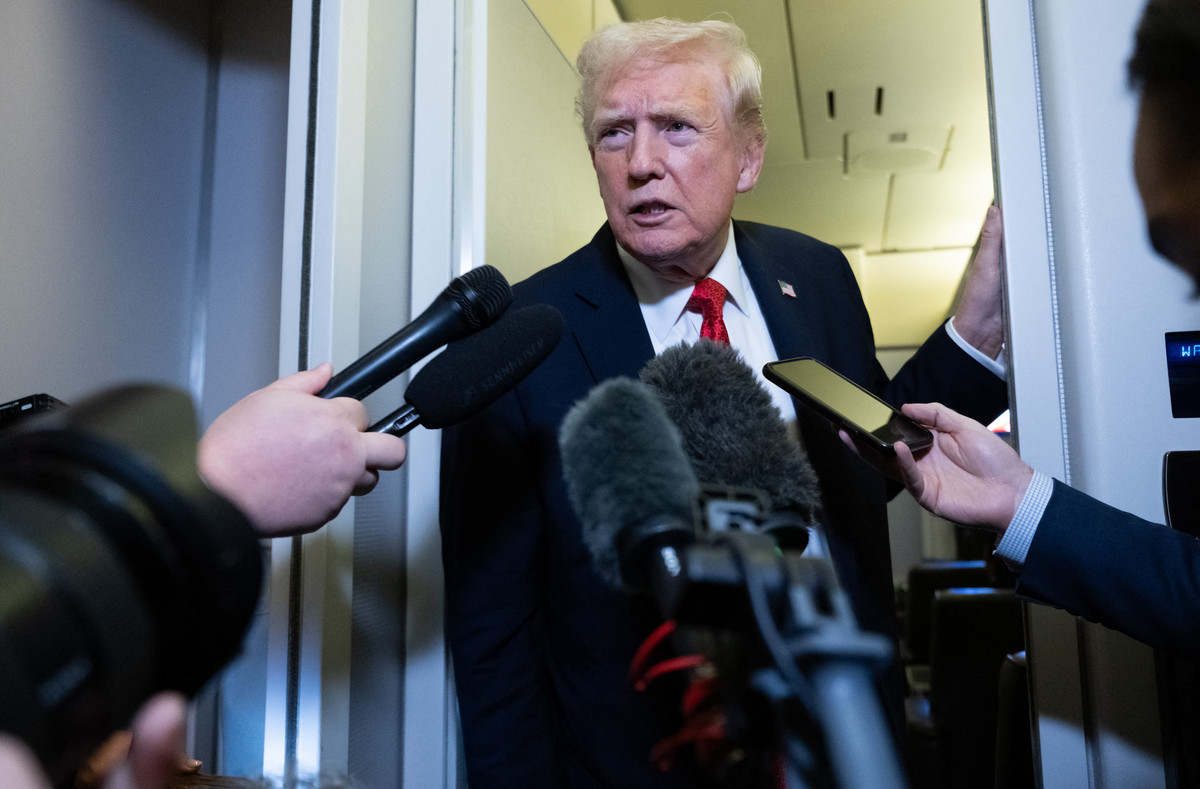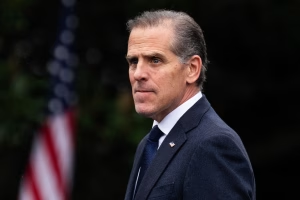President Donald Trump has sparked renewed interest in his personal health after sharing details about a recent MRI scan. Speaking candidly to the press, Trump described the results of the procedure in terms that many observers found unusual, even for a public figure who has long been at the center of intense media scrutiny.
Over the past several months, President Trump’s health has been a recurring topic of conversation. Early in the year, he was photographed with what appeared to be a large bruise on his hand. The incident prompted widespread speculation about the cause, with some observers noting that the mark seemed heavily concealed, possibly with makeup. The combination of the visible bruise and the attention to its concealment fueled further curiosity about Trump’s overall health.
Adding to the discussion, it was previously reported that Trump had been diagnosed with chronic venous insufficiency (CVI), a condition that affects the veins in the legs. CVI occurs when the leg veins are damaged or weakened, impeding their ability to return blood efficiently to the heart. Symptoms can include swelling, pain, and a feeling of heaviness in the legs. Though not generally considered life-threatening, the condition often requires ongoing monitoring and care.
In late October, White House Press Secretary Karoline Leavitt announced that President Trump would be visiting the Walter Reed National Military Medical Center for his annual health evaluation. Trump subsequently confirmed he had undergone an MRI as part of this checkup. Speaking to reporters aboard Air Force One, he offered a detailed—if unconventional—account of the procedure.
“I gave you the full results,” Trump said. “We had an MRI, and the machine, you know, the whole thing, and it was perfect.” He did not elaborate on the precise reason for the scan, leaving room for speculation, but emphasized that he had personally reviewed the results.
Trump further addressed the significance of the findings in a manner that seemed aimed at reassuring both the public and political observers. “Nobody has ever given you reports like I gave you,” he said. “And if I didn’t think it was going to be good, either, I would let you know negatively. I wouldn’t run, I’d do something.”
His statements suggested confidence in the assessments provided by his medical team. “The doctor said some of the best reports for the age, some of the best reports they’ve ever seen,” Trump added, implying that his MRI results were exceptional for someone in his late seventies.
During a briefing on November 14, President Trump revisited the topic aboard Air Force One, offering further details about the procedure and its outcomes. “I had an MRI,” he said. “Very standard.” He highlighted the positive reaction of his physicians, describing the results as “outstanding.” Trump went on to note that doctors were particularly impressed with his scan, suggesting it exceeded typical expectations for a patient of his age.
When asked by reporters whether his brain had been included in the MRI evaluation, Trump responded diplomatically. “I have no idea what they analyzed,” he said, “but whatever they analyzed, they analyzed it well. And they said I had as good a result as they’ve ever seen.” His answer, while vague, reinforced the overall message of health and vitality that he has consistently promoted.
President Trump’s latest statements arrive amidst ongoing public fascination with the health of senior political leaders. This attention intensified earlier this year when rumors circulated suggesting that Trump might be facing serious health challenges. These claims were amplified by various factors, including remarks from Vice President JD Vance. At the time, Vance commented that he was prepared to assume presidential responsibilities in the event of a “terrible tragedy,” prompting headlines and online speculation about Trump’s physical condition.
Despite the swirling rumors, Vance publicly affirmed his confidence in President Trump’s capabilities. Speaking to USA Today in August, he said, “I’ve had a lot of on-the-job training in the last 200 days, but the president is in incredibly good health. He’s got incredible energy.” Vance’s comments underscored a central theme in Trump’s public persona: resilience and stamina, even under intense scrutiny.
President Trump himself has consistently sought to counteract rumors about his health, most notably through direct messages on his social media platform, Truth Social. He declared unequivocally, “NEVER FELT BETTER IN MY LIFE.” These statements, coupled with his recent MRI results, serve to reinforce the narrative of robust health, despite the occasional medical concern reported in the press.
Analysts note that public interest in Trump’s health is fueled not only by genuine concern but also by political considerations. Leaders’ health often becomes a matter of national discourse, particularly for figures whose decisions have wide-reaching implications. The combination of age, past health conditions, and high visibility means that every minor update is scrutinized for insight into potential vulnerabilities.
Trump’s approach to discussing his MRI results is consistent with his broader communication strategy. By framing the procedure as both routine and exceptional, he positions himself as a leader whose physical condition meets, or exceeds, public expectations. This messaging has a dual effect: it reassures supporters while complicating the efforts of critics who may seek to question his fitness for public duties.
Medical experts consulted by media outlets have generally noted that routine MRI scans are a standard aspect of preventive care for individuals in their late seventies. The procedure is non-invasive and provides detailed images of internal structures, allowing physicians to monitor potential issues in the brain, spine, or other organs. When interpreted by experienced clinicians, the results can offer valuable insights into cardiovascular health, neurological function, and other critical systems.
While President Trump has emphasized the positive outcomes of his scan, it remains unclear what specific areas were evaluated or whether any follow-up assessments are planned. Regardless, his insistence on transparency—albeit in his distinctive style—reflects a recognition of the heightened scrutiny surrounding his health. By publicly describing the MRI as “outstanding,” he signals both confidence and reassurance to his audience.
Observers have also noted the contrast between the media’s portrayal of minor health incidents and Trump’s own narrative. For instance, the earlier photograph showing a hand bruise sparked intense speculation, while Trump’s explanation has consistently been brief and to the point. By combining anecdotal commentary with statements from his medical team, he constructs a narrative that emphasizes strength and vitality, minimizing attention to minor concerns.
In broader context, Trump’s recent health disclosures are part of a long-standing pattern in which senior political leaders use medical updates strategically. Public statements about health can serve multiple purposes, from reassuring supporters to preempting media speculation. In Trump’s case, the combination of personal commentary and physician endorsement creates a powerful impression of resilience, particularly given his advanced age and the demands of public life.
The MRI discussion also intersects with ongoing debates about transparency and the public’s right to know about elected officials’ health. Critics often argue that detailed disclosures are necessary to ensure voters are fully informed, while supporters counter that routine medical evaluations should not be sensationalized. Trump’s commentary navigates this tension by providing specific praise for his results while withholding exhaustive medical detail.
For many political observers, the emphasis on “outstanding” results will likely be interpreted as a signal that President Trump is fit to engage in demanding professional responsibilities. The choice of words—repeated across multiple press encounters—reinforces the impression of robust physical well-being and positions him favorably in the eyes of both allies and the broader public.
The episode also highlights the role of messaging in shaping public perception. In addition to the MRI results, Trump’s repeated affirmations about his overall health serve as a counterweight to persistent speculation. By framing the medical evaluation in positive terms, he maintains control of the narrative and shapes media discourse around his vitality rather than potential vulnerabilities.
As the conversation continues, political analysts and medical commentators alike will likely examine Trump’s health updates closely. While there is no indication of serious medical concerns, the combination of advanced age, previous medical conditions, and public scrutiny ensures that any new information is of interest. In this environment, statements such as the recent “outstanding” MRI report take on added significance, influencing both public perception and political discourse.
In conclusion, President Trump’s recent health update, centered on his MRI scan, has drawn considerable attention due to both the unusual style of his commentary and the broader context of his public persona. While some questions about the specifics of the procedure remain unanswered, the overarching message is clear: according to Trump and his physicians, his health is exceptional for his age. By sharing this information directly with the press, he reinforces the narrative of vitality that has long been associated with his political identity.
For viewers interested in seeing President Trump discuss his MRI scan in his own words, a video of the exchange is available [insert video here]. The footage captures both the confidence with which he addresses the subject and the reactions of reporters during the briefing.

Emily Johnson is a critically acclaimed essayist and novelist known for her thought-provoking works centered on feminism, women’s rights, and modern relationships. Born and raised in Portland, Oregon, Emily grew up with a deep love of books, often spending her afternoons at her local library. She went on to study literature and gender studies at UCLA, where she became deeply involved in activism and began publishing essays in campus journals. Her debut essay collection, Voices Unbound, struck a chord with readers nationwide for its fearless exploration of gender dynamics, identity, and the challenges faced by women in contemporary society. Emily later transitioned into fiction, writing novels that balance compelling storytelling with social commentary. Her protagonists are often strong, multidimensional women navigating love, ambition, and the struggles of everyday life, making her a favorite among readers who crave authentic, relatable narratives. Critics praise her ability to merge personal intimacy with universal themes. Off the page, Emily is an advocate for women in publishing, leading workshops that encourage young female writers to embrace their voices. She lives in Seattle with her partner and two rescue cats, where she continues to write, teach, and inspire a new generation of storytellers.









